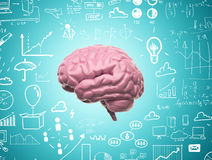
The one that was supposed to waste traditional philosophy? At Mind Matters Today,
Back in 1992, philosopher of mind Jerry Fodor said,
“…we’re all materialists for much the reason that Churchill gave for being a democrat: the alternatives seem even worse. The new research project [science of mind] is therefore to reconcile our materialism to the psychological facts: to explain how something that is material through and through could have whatever properties minds actually do have….
Thinking of philosophical materialism as a science must have seemed like a step forward at the time.
Over twenty-five years later, there have been dozens of theories of consciousness jostling for the podium, most of them “worse than wrong,” even in the eyes of a sympathetic observer (2016). Not only has the materialist approach failed but in recent years, its failure has brought serious intellectual figures round to such views as consciousness is an illusion or that everything is conscious.
It is past time to consider non-materialist approaches. Certainly, they cannot do any worse. Information theory may help them do much better though they will likely disconfirm naturalism as a guide to the universe. More.
New stories at Mind Matters Today:
 Jay Richards asks, can training for an AI future be trusted to bureaucrats? We hear so much about how the AI revolution gobbles industrial era jobs that we don’t notice the digital era jobs unfilled.
Jay Richards asks, can training for an AI future be trusted to bureaucrats? We hear so much about how the AI revolution gobbles industrial era jobs that we don’t notice the digital era jobs unfilled.
 No Thanks, Google, I’ve Got This! Seattle writer Andrew McDiarmid responds to Google’s latest love bomb aimed at controlling our lives.
No Thanks, Google, I’ve Got This! Seattle writer Andrew McDiarmid responds to Google’s latest love bomb aimed at controlling our lives.
 See also: Neurosurgeon outlines why machines can’t think: The hallmark of human thought is meaning, and the hallmark of computation is indifference to meaning.
See also: Neurosurgeon outlines why machines can’t think: The hallmark of human thought is meaning, and the hallmark of computation is indifference to meaning.